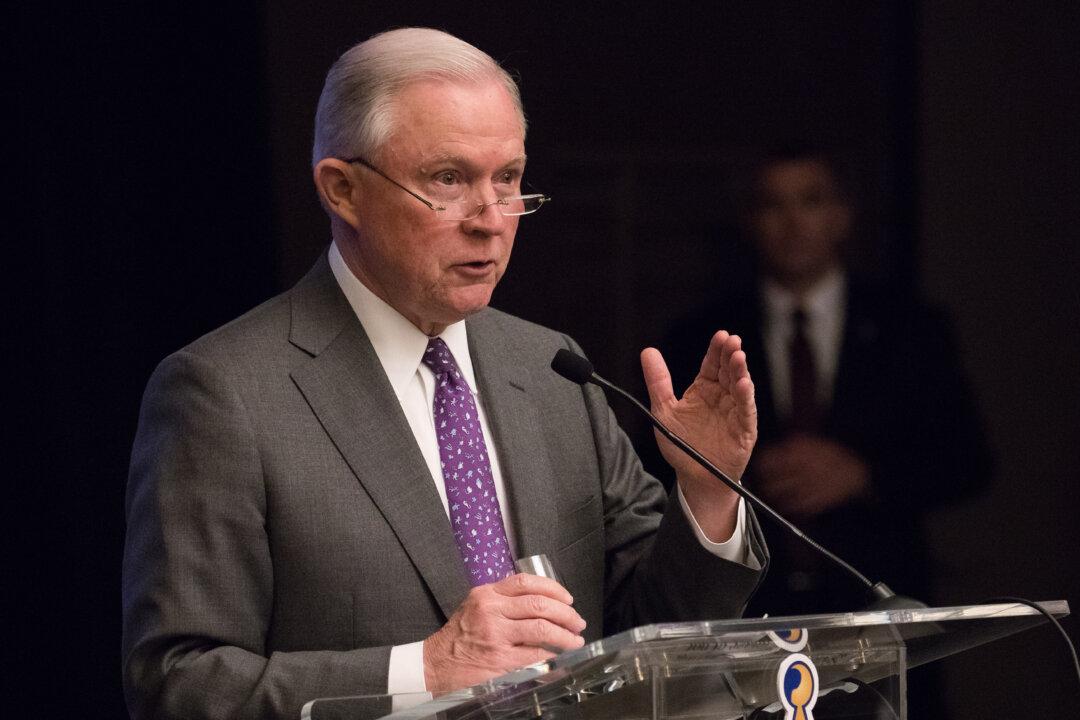Responding to a trend of speech codes being instituted on college campuses, Attorney General Jeff Sessions said the Department of Justice is concerned about the suppression of free speech, and that it won’t hesitate to get involved if it finds this right being eroded on college campuses in favor of “politics, ideology, passion, and power.”
Last year, the Foundation of Individual Rights in Education (FIRE) found that of 449 colleges it surveyed, almost 40 percent had some sort of speech code that restricted the right to free speech protected under the First Amendment, which also protects the rights to assemble, to petition the government, and to freely practice one’s religion.





